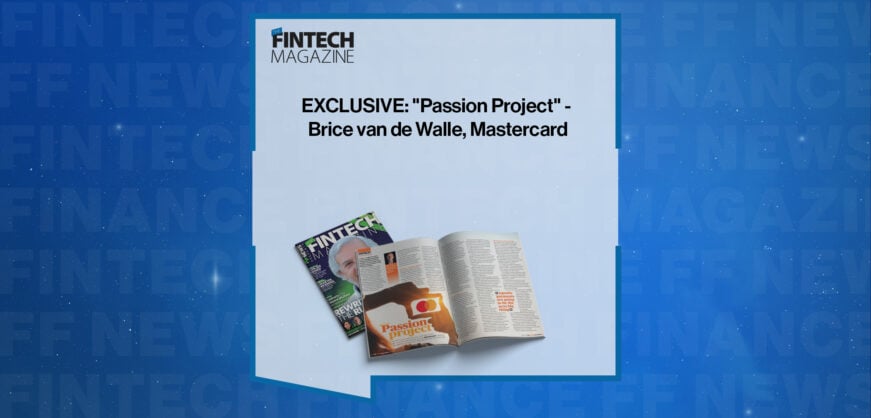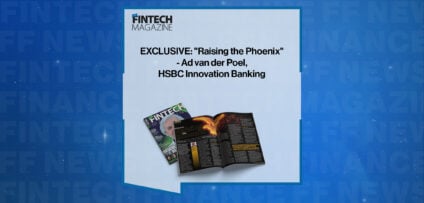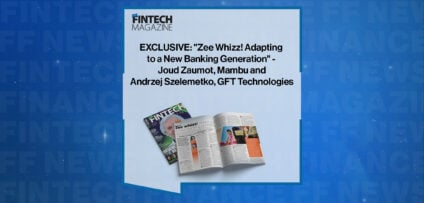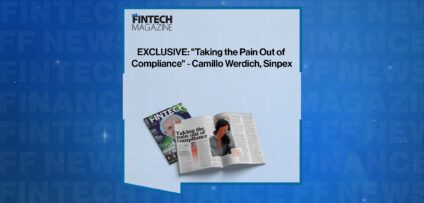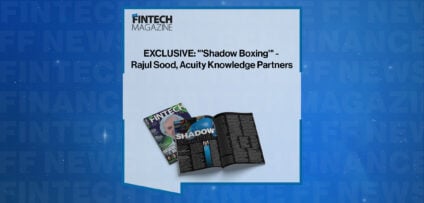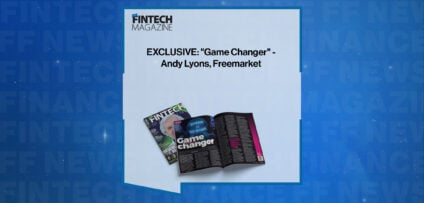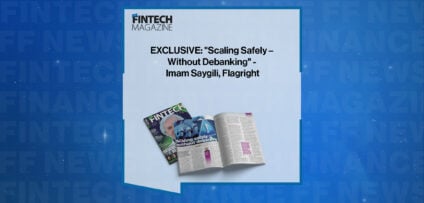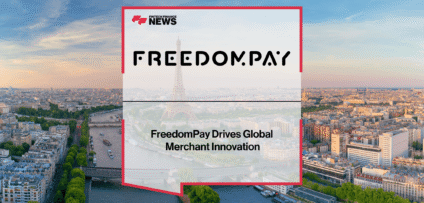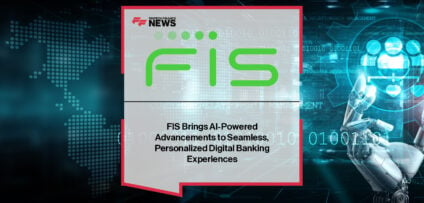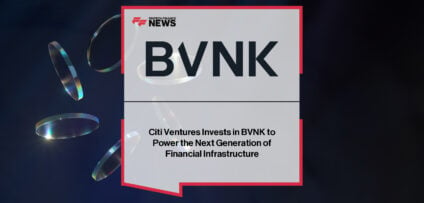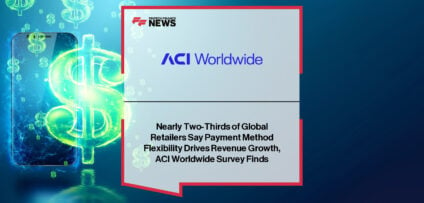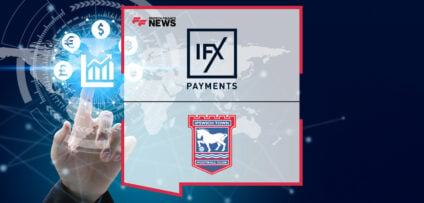Breaking News

EXCLUSIVE: “The Hard Yards” – Sabrina Tharani, Mastercard in ‘The Fintech Magazine’
Mastercard’s Start Path programme has been rooting for fintech founders for a decade. Programme Leader Sabrina Tharani explains why the company is so invested in supporting companies at the kick-off through ‘radical collaboration’
At a time of tight squeeze on fintech investment, a startup or scaleup needs all the help it can get: and having one of the biggest payment technology companies in the world on your side certainly improves your chances of reaching the fintech superbowl. Launched in 2014, Mastercard’s Start Path engagement programme has already propelled many aspiring players into the big league. More than 380 companies across 54 countries have taken part.
And, as the programme has matured, it’s had as much of a social impact on the innovation ecosystem as a financial one by targetting support at discrete categories of under-represented founder – including female and minority entrepreneurs.
Like a good quarterback, Mastercard clearly sees its role as knowing where everyone is on the pitch and playing to their strengths.
Over the past 10 years, Mastercard – as mentor to, and investor in, the startup community – has responded as the world changed, launching strands for fintechs focussed on digital assets and open banking. It started a Start Path cohort specifically for Ukrainian fintechs and entrepreneurs, so they could contribute to the rebuilding of their country’s economy following Russia’s invasion.
And, after a worryingly steep decline in the size of fintech raises and deal counts in 2023, Mastercard joined Barclays and the London Stock Exchange to back a £1billion investment fund specifically for UK companies. Start Path itself is about more than money, though: it helps fintech startups access strategic partnerships, co-innovation opportunities and engagement with the payment giant’s global network – a strategy that was somewhat unusual a decade ago.
“The narrative then was about radical disruption; how are we [the incumbents] going to get disintermediated, and what are the companies out there that are trying to take our share?” says Sabrina Tharani, who heads Start Path today. “But now, 100 per cent, it’s about radical collaboration, in my opinion. And I think that’s why programmes like Start Path are so successful, because not just did we realise that, as a large, kind of, legacy institution, but startups also figured out that by partnering with organisations like ours, the banks, even other payment networks, there is a faster path to scale.
“And so, for us, fintech is one of the most critical customer segments for our business. They are going to fuel the next generation of growth, the next generation of technologies that will create more inclusive economies, but also help us build better experiences, that we couldn’t otherwise do ourselves.”
It’s not a cynical endeavour, she insists – not just about Mastercard selling them services, or getting them to buy Mastercard assets.
“It’s about how we collaborate together to coinvent new products and services, bring them to market more efficiently, and do so in a really meaningful way, that’s going to bring more people into the financial economy,” says Tharani. There are a few critical components to building those partnerships.
“Transparency and trust are paramount to making sure that the relationship works,” she says. “So going into any type of partnership conversation, you need to make sure that there is visibility into the objectives on both sides, that your incentives are aligned, and you’re able to have and broker honest conversations.
“Without that type of trust built in from the beginning, you’re not going to have a successful relationship.
“Fintech is one of the most critical customer segments for our business. They are going to fuel the next generation of growth”
“The second thing I tell all of our Start Path partners is that you have to be obsessed with the problem, not the solution. We are not looking for a really fancy, shiny new product that we’re going to need to find product-market fit for. We’re trying to solve some of the world’s biggest challenges: financial inclusion, open banking, connectivity of data around the world. We’re even trying to figure out sustainability challenges, like how do we help consumers better understand their carbon footprint through their purchases?
“These are massive global challenges. We want to find partners as obsessed with the problems as we are, and who are building solutions that have a good fit.
“Lastly, we think about how we jointly bring solutions to market together. What are the unique variables that Mastercard has that can help the startup be successful? And what are the things that they do that we know we can’t, or maybe we could, but we can do it better and faster together. What is that equation? What can we bring to the table? What can they bring to the table? And then how do we jointly bring that to market?”
BETTER TOGETHER
The advantages for companies handpicked for Start Path, which range from seed to Series B, are immense. They gain access to Mastercard’s technology, worldwide product teams and regulatory experts, along with its channels and customers in its global network of more than 20,000 banks. The end game is very clear, insists Tharani, and that is to sign partnership deals.
“This is not innovation theatre – it’s very much about what are the tangible projects that we can work on together, and how do we sign deals as quickly as possible with these customers and partners?”
Crucially, it helps the fintechs with business development.
“Everyone in the portfolio gets a sponsor on my team, who’s really their ambassador, their quarterback for their Mastercard engagements, who helps them navigate a complex corporate matrix,” says Tharani. “That unlocks internal opportunities, but we also put them on some pretty big stages such as industry conferences.”
So how does Mastercard measure the success of its Start Path partnerships?
Firstly, says Tharani, it’s the number of commercial deals it has signed with those fintechs over the course of a year, thereby solving key pain points for Mastercard and its customers. One such success is with UK-based real-time payments processor Kani, which went through the Start Path programme in 2022 and is now preparing to expand into the US. But there is another important metric, Tharani reveals, which reinforces Mastercard’s strategic role in the ecosystem. It involves tracking how many of Mastercard’s customers leverage the partners that it brings to them.
“When we go to a Tier 1 bank, and we introduce them to a startup in our portfolio, we’re proud to see that bank sign up directly with that company, even if Mastercard is not part of the equation,” she explains. “It means that we’re building value across the fintech ecosystem, helping expand the industry, but also servicing our customers, and giving them access to these really innovative solutions.”
She acknowledges that the recent slowdown in economic growth and slough in investment for fintech founders following the insane peaks of 2021/22, has ‘changed the way that we have to approach the conversation’.
“I think we went back to business basics – how to build a good company, how to properly scale your business model – and we’re finding that the resilient founders are going to be successful in partnerships with Mastercard in the future.”
SPOTLIGHT
Start Path small business programme
In mid-2023, Mastercard selected the first five startups to join its inaugural Start Path Small Business programme, which is specifically aimed at helping entrepreneurs grow their businesses by offering digital solutions beyond payments.
The cohort included Cumplo, DigiAlly, PayGoal, Tribe Fintech and the then one-year-old London-based Uome, an API platform that was created to make life simple for the self-employed community, particularly creatives, entrepreneurs, tradespeople, accountants, consultants and freelancers, by enabling them to run their firms from their phones.
Users of the Uome app can build client relationships, send invoices, get paid, do their tax preparation and send project updates all in one place. It now includes a subscription model with additional tools.
Start Path boss Sabrina Tharani says: “We think small business is going to be a pretty major topic next year, so we’re doing a lot in the small business space, helping businesses get easier access to capital, helping them unlock digital opportunities, helping them with payment acceptance in more innovative ways. It’s a huge growth area, for not just Mastercard, but for the payments industry overall and the economy
This article was published in The Fintech Magazine Issue 31, Page 10-11
People In This Post
Companies In This Post
- EXCLUSIVE: “Passion Project” – Brice van de Walle, Mastercard in ‘The Fintech Magazine’ Read more
- FreedomPay Drives Global Merchant Innovation Read more
- FIS Brings AI-Powered Advancements to Seamless, Personalized Digital Banking Experiences Read more
- Citi Ventures Invests in BVNK to Power the Next Generation of Financial Infrastructure Read more
- Nearly Two-Thirds of Global Retailers Say Payment Method Flexibility Drives Revenue Growth, ACI Worldwide Survey Finds Read more






